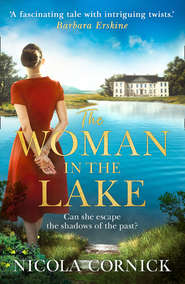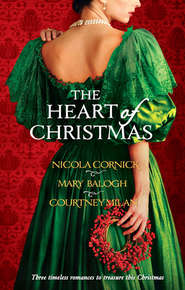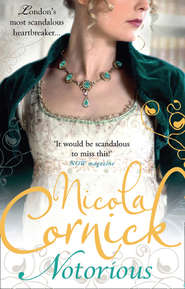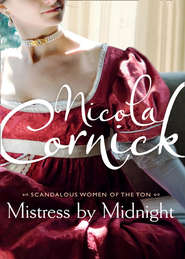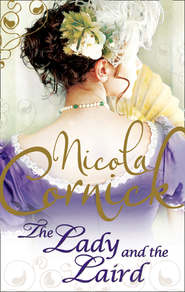По всем вопросам обращайтесь на: info@litportal.ru
(©) 2003-2024.
✖
Desired
Настройки чтения
Размер шрифта
Высота строк
Поля
Owen Purchase, Viscount Rothbury, on inheritance of the title as the grandson of the cousin of the 13th viscount …
Gracious, the connection had been as distant as all the gossips were saying.
Principal Seat: Rothbury Chase, Somerset. Also Rothbury House in Clarges Street, Rothbury Castle, Cheshire, and five other estates in England …
In that respect at least, Tess thought, Owen Purchase’s endowments were not to be underestimated. He also had an income from those estates that was reckoned to be in excess of thirty thousand pounds per annum, which was not outrageously rich but not to be sneezed at either. There was more invested in the stock market. He was, of course, a mere viscount and so she already outranked him, but …
Tess put a stop on her galloping thoughts, placed The Gazetteer gently on the fat gold cushions of the sofa and stared fixedly at the rioting rose pattern on the Aubusson carpet. Her chest felt tight, her breath shallow. She was not sure that she was really considering what she thought she was considering. Viscount Rothbury as her next husband.
Normally she would not countenance such a marriage because Rothbury was not the sort of man she felt comfortable dealing with. He was too young, too handsome, too authoritative, too everything. But she was, if not a beggar, then certainly not in a position to choose. And Rothbury possessed several advantages. Marriage to him would remove the threat that Sidmouth posed, since not only would Rothbury be unable to testify against her, no one would suspect his wife of sedition in the first place. He was also powerful enough to protect her and the Darent twins from Lord Corwen. Plus of course his most priceless attribute was that he would not expect her to occupy the marriage bed.
There was only one flaw in her plan. She was sure that Rothbury already suspected her to be Jupiter, so if she were to approach him proposing marriage he would surely be very suspicious indeed. On the other hand, he had no proof or he would have arrested her already. If she were clever and careful she might be able to persuade him of her innocence. Plus Rothbury had little money and a keen need for some to repair his estates, and she was very, very rich. He might well be tempted enough by her fortune to marry her anyway.
Tess realised she was clenching her hands together so tightly that her nails were biting into her palms. There were, in truth, precious few other options open to her in the husband stakes.
With a quick, decisive gesture she picked up The Gazetteer and tucked it under her arm. If Rothbury had returned directly to Clarges Street, then he would be home by now. There was no time like the present. She had a call to make before her courage deserted her.
CHAPTER FOUR
IT WAS IN FACT THREE HOURS before Tess was ready to go out, since to her time was a relative concept normally measured by how long it took her to dress. Usually she did not have a great deal of difficulty in selecting an outfit for any occasion. Today was different, however. It was seven years since she had made her last marriage proposal, to the Marquis of Darent. On that occasion she had worn holly-green and had been well pleased with her appearance. She was not sure Darent had noticed it, though. She suspected he might have dozed off during her proposal, overcome by a laudanum-induced stupor.
The thorny question of what to wear to make Lord Rothbury an offer he could not refuse was not so easy, however. After trying on a few outfits, she finally settled on a jonquil-yellow gown and matching bonnet. She was disturbed to see that when she checked her appearance in the pier glass she looked young and apprehensive, her blue eyes wide and dark and the faintest hint of nervousness in the tense line of her cheek and jaw. She stood straighter and tried to smile. It came out more as a grimace. Anxious was how she felt, unusual for her, but not how she wanted to look. With a sharp sigh of irritation she picked up her matching cloak and reticule and hurried out to the carriage.
Rothbury House was in Clarges Street, not far from Joanna’s home in Bedford Street and a most quiet and respectable address. The house itself looked dusty and shuttered although Rothbury had been living there for at least a year. It was interesting, Tess thought, that the viscount had not sought to make an impact on society when he came into his inheritance. It was the ton that had courted him rather than he seeking recognition from the ton.
The carriage halted. Tess clenched her fingers briefly inside her fur-lined gloves. There was a curious pattering of nervousness in her stomach. This, she reassured herself, was not in the least surprising. She had proposed to a man only three times before and none of those men had been anything like Lord Rothbury.
For a moment she sat frozen still on the carriage seat, wondering if she had made a terrible mistake in choosing the viscount. It was not too late. Except it was too late, for the carriage door had opened, allowing a swirl of cold autumnal air inside. It was no servant standing there, waiting to help her alight, but Rothbury himself. Evidently he had called elsewhere on his way back from Bedford Street for he was still in outdoor dress and looking impossibly broad shouldered and tall in the beautifully cut coat. He had taken off his hat and there were snowflakes settling in his tawny-brown hair.
“Lady Darent,” he said. “I had not expected to see you again so soon. What may I do for you?” His voice was smooth as honey, that deep drawl rubbing against her senses like silk. It would be very easy to be lulled into a false sense of security by such mellow tones. And that, Tess thought, would be another big mistake. She did not want to be lulled into anything by Lord Rothbury. She needed her wits about her.
He extended a hand to help her out of the coach and after a moment Tess reluctantly took it. She did not want to touch him. She rarely touched anyone. Brokeby’s cruelty had bred in her revulsion for physical contact. No matter how impersonal the touch was she shrank from it.
Rothbury’s touch was not impersonal. His fingers closed about hers and Tess could not quite repress the tremor of awareness and apprehension that quivered through her. He felt it too; his eyes narrowed momentarily on her face, a perceptive flash of green. Tess felt the heat burn into her cheeks. She was blushing again, so rare an occurrence that she had almost forgotten how it felt. Except that around Rothbury it was not rare at all. She concentrated on descending the carriage steps neatly. Falling into his arms at this or indeed any other moment was not part of her plan.
Once her feet were firmly on the pavement, Rothbury released her and stood back, but his gaze was still fixed intently on her face. He was, Tess realised, still waiting for her reply to his question.
“There is a business proposition I would like to discuss with you, Lord Rothbury,” she said, “but not out here in the street.” Her voice was not quite as steady as she might have wished. It lacked authority and she hated that.
Rothbury bowed ironically. He looked completely unsurprised, as though his female acquaintances frequently appeared unannounced on his doorstep to discuss some sort of mysterious business. Perhaps they did, Tess thought. She had heard enough about his past as an adventurer to know that her unexpected arrival was probably the least exciting or unforeseen thing that had happened to him all year.
“Then please step inside.” He stood back to allow her to precede him up the steps and into the hall. Tess’s immediate impression was of darkness. The hall was so full of statuary and enormous china vases that she was afraid she might blunder into one of them in the gloom. The previous Lord Rothbury, she recalled, had been a scholar of ancient civilisations. The collection must represent some of his research. She repressed a shudder. The house felt as dry and lifeless as a museum display.
“A mausoleum, I know.” Rothbury’s voice cut through her thoughts, reading them with uncanny accuracy. “I have yet to decide what to do with it.” He glanced at her. “Did you ever meet my cousin, the previous viscount, Lady Darent?”
“Not that I recall,” Tess said. “I heard he was a prodigious academic, always travelling and adding to his collections.”
Rothbury nodded. “We shared a love of travel, he and I. It makes for a bond between us even though we never met.” He smiled. “I assume that you know the rest of my inherited family though—my great-aunts Ladies Martindale, Borough and Hurst?”
Tess looked up sharply. This was even better than she had imagined. Ladies Martindale, Borough and Hurst were a trio of the most fearsomely upright dowagers in society.
“Lady Martindale is a very high stickler—completely terrifying,” Tess said.
“Even to you?” Rothbury murmured. “I thought you impervious to the disapproval of society.”
He loosed his coat and handed it with a word of thanks to a butler who looked as though he was part of the statuary.
“Would you like Houghton to take your cloak, Lady Darent, or will your stay be of short duration?” There was gentle mockery in his voice.
Tess hesitated. The house was not cold but she felt as though she required the extra layers of protection her cloak gave her, rather like a suit of armour. The conviction beat in her mind that she was about to make a very serious mistake. Despite all of Rothbury’s advantages—impotence, respectable relatives—she could not quite get past her discomfort.
But whilst she had been thinking, he had taken her arm and steered her into the library. The double oak doors shut behind her with a stealthy snap and it felt like another trap closing.
“I apologise if you think me high-handed.” His smile stole her breath, something that happened so rarely to her that for a moment Tess wondered if the tightness in her chest meant that she was ailing. The charm of handsome men generally left her utterly cold.
Rothbury leaned back against the library doors, arms crossed, broad shoulders resting against the panels, another barrier to her escape.
“I am at your service,” he murmured, “whenever you are ready to acquaint me with this business proposition you have.”
Tess’s throat dried. “I wanted …” She groped for the words that had scattered like petals in the breeze. “That is, I thought …”
One dark brow rose quizzically as Rothbury surveyed her confusion.
“I came here—” Gracious, she had lost all her town bronze. This would never do.
“I came here to ask you to marry me,” she finished, with all the finesse of a tongue-tied schoolgirl. “In name only, that is. I wish for a marriage of convenience.”
Mortified, she stood pinned to the spot whilst a burning blush seemed to creep up from her toes to engulf her entire body. It was difficult to see how matters could have gone more painfully awry. She had wanted to be so cool, so composed. She had wanted to be herself, Teresa, Dowager Marchioness of Darent, poised and self-assured. Instead, this man had taken all her confidence and turned it inside out. She should have known not to engage in this dangerous game of using Rothbury for his name and his protection, because any moment now he would call her bluff, accuse her of sedition and very likely have her thrown in the Tower of London.
Rothbury was silent for a very long moment. Finally, when Tess was about to stammer an apology and climb out of the window in her desperation to escape, his shoulders came away from the door and he started to move towards her. Panic gripped her by the throat as he drew closer to her. There was something about his physical presence that was so powerful, so authoritative, that it made her supremely uncomfortable. She did not feel threatened by him in the same way as she had by Brokeby, with that terrible fear that had made her skin crawl. Rothbury, she knew instinctively, was not a man who would ever hurt a woman. Even so his physical proximity filled her with unease.
Rothbury took her chin in his hand and turned her face to the faint light that penetrated the room from the long windows. Tess tried to remain still beneath his touch although the impulse to break away from him was strong. No one touched her. Ever.
“An extraordinary suggestion,” he murmured. “A marriage in name only. Why would you wish for that?” He allowed his hand to fall and Tess felt the relief swamp her, heady as wine, enough to turn her dizzy for a brief moment. Rothbury took a step away from her and then turned sharply back on his heel.
“It was not a rhetorical question,” he said.
Tess jumped. “Oh!” Her mind was a blank. Why had she not anticipated that Rothbury might ask that question—and a great many more difficult questions besides? She had hurried off to proposition him without laying the groundwork first. She should have realised that he was not the kind of man, like Darent before him, to accept such an arrangement without debate.
Rothbury was still watching her with one eyebrow raised in an odiously quizzical manner. And her mind was still blanker than a blank canvas.
“No doubt you will share your reasons with me before too long,” he said, still in the same gentle drawl. “Meanwhile, I have another question. This may seem impertinent, Lady Darent—vulgar, even—but I have to ask it.” He smiled. “What exactly is in this for me?”
OWEN HAD HAD A VERY entertaining ten minutes, possibly one of the most unexpected and interesting ten minutes that he had experienced in his entire life. He had received a number of marriage proposals over the course of his thirty-two years. Some had been from enterprising courtesans on the make, others from respectable young ladies seeking to escape the tedium of life in the schoolroom. One had been from a fabulously wealthy princess wanting to run away from an arranged marriage to a fellow royal. None had been as brazen as this proposal of a marriage of convenience from so notorious a widow who collected husbands with a similar reckless abandon to which King Henry VIII had gathered and shed his wives.
Owen had never imagined himself as anyone’s fourth husband. Until ten minutes before, the idea of marriage had been the last thing on his mind. And marriage to Teresa Darent, of all people … It was an absurd notion.
It was a fascinating notion.






